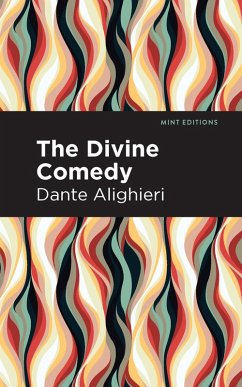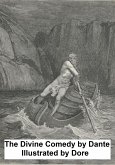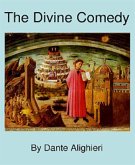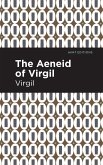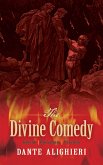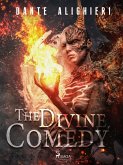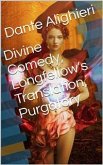The Divine Comedy (1320) is a narrative poem by Dante Alighieri. Begun in 1308 while Dante was exiled from his native Florence, The Divine Comedy-a long poem divided into three books of 33 cantos each-presents the author's spiritual journey from sinfulness and despair to salvation and self-understanding. Written in the Tuscan vernacular, the poem was influential in establishing a standardized Italian language.
In the first book, Inferno, Dante is led by the Roman poet Virgil into Hell. There, he comes to terms with his own sinfulness while observing the horrors and tortures suffered by those condemned to eternity in its circles. Along the way, Dante encounters historical figures, acquaintances, and other individuals whose violence, fraud, treachery, and betrayal led their spirits to terrible suffering. This technique, which incorporates dialogue with detailed description, is used throughout The Divine Comedy to provide context on historical, theological, and political subjects while simultaneously situating the poet as narrator and interlocutor in his own work. In this way, the physical and spiritual journey portrayed in the poem becomes a journey for Dante himself, a way of transcending the despair he describes at its beginning. In Purgatorio, Dante follows Virgil on an ascent of the Mountain of Purgatory, where he encounters the souls of sinners who must atone for their actions in life before entering Heaven. Leaving Virgil behind, Dante, in Paradiso, follows a divine Beatrice through the celestial spheres of Heaven. As he approaches God and his own salvation, changed by a newfound sense of "the Love which moves the sun and the other stars," Dante ascends to the heights of world literature, uniting the created soul and the artist's creation as no other poet has done before or since.
With a beautifully designed cover and professionally typeset manuscript, this edition of Dante Alighieri's The Divine Comedy is a classic of Italian literature reimagined for modern readers.
In the first book, Inferno, Dante is led by the Roman poet Virgil into Hell. There, he comes to terms with his own sinfulness while observing the horrors and tortures suffered by those condemned to eternity in its circles. Along the way, Dante encounters historical figures, acquaintances, and other individuals whose violence, fraud, treachery, and betrayal led their spirits to terrible suffering. This technique, which incorporates dialogue with detailed description, is used throughout The Divine Comedy to provide context on historical, theological, and political subjects while simultaneously situating the poet as narrator and interlocutor in his own work. In this way, the physical and spiritual journey portrayed in the poem becomes a journey for Dante himself, a way of transcending the despair he describes at its beginning. In Purgatorio, Dante follows Virgil on an ascent of the Mountain of Purgatory, where he encounters the souls of sinners who must atone for their actions in life before entering Heaven. Leaving Virgil behind, Dante, in Paradiso, follows a divine Beatrice through the celestial spheres of Heaven. As he approaches God and his own salvation, changed by a newfound sense of "the Love which moves the sun and the other stars," Dante ascends to the heights of world literature, uniting the created soul and the artist's creation as no other poet has done before or since.
With a beautifully designed cover and professionally typeset manuscript, this edition of Dante Alighieri's The Divine Comedy is a classic of Italian literature reimagined for modern readers.
Dieser Download kann aus rechtlichen Gründen nur mit Rechnungsadresse in A, D ausgeliefert werden.

